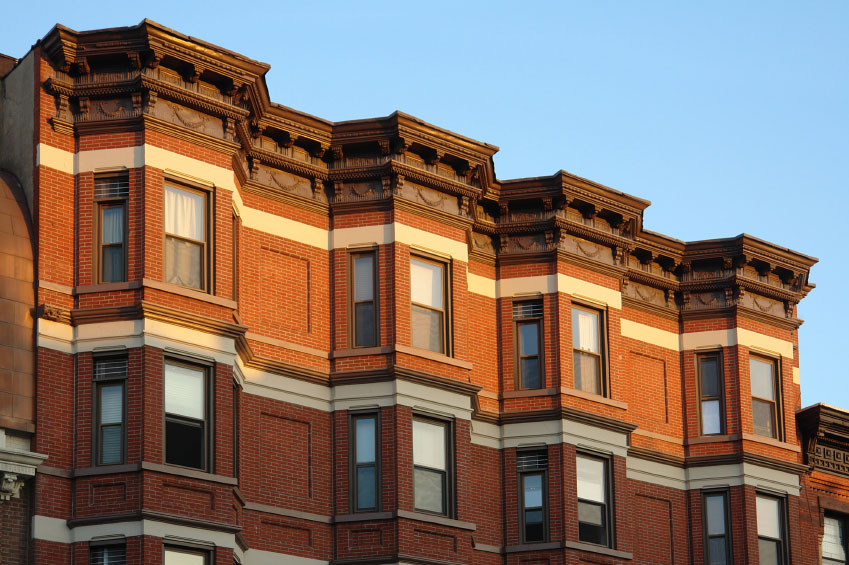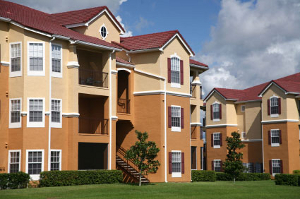FHA Approved Condo Eligibility
By Sari R. Updated on 7/19/2017 You should always consider whether or not the property is FHA-approved when purchasing a property. The FHA will only allow borrowers to apply funds from an FHA loan toward homes that have been approved.
You should always consider whether or not the property is FHA-approved when purchasing a property. The FHA will only allow borrowers to apply funds from an FHA loan toward homes that have been approved.
Consequently, condo owners with properties not approved by the FHA can only sell their homes to a limited amount of borrowers, thus reducing the overall value of their properties.
Basic FHA Condo Eligibility
For a property to be considered for FHA approval, the condominium project must comply with State regulations as well as any other applicable regulations.
FHA Condo Ineligible Properties
Unfortunately, FHA approval does not extend to all types of condominium properties. As a result, the following property types are ineligible for qualifying for the FHA condominium program:
- Condominium hotels or “Condotels”
- Timeshares or divided ownership projects
- Houseboat projects
- Multi-dwelling unit condominiums (i.e. two or more dwellings per condo unit)
- All projects in which the primary function is not residential
Site Condominiums
Effective June 12, 2009, site condominiums no longer require condominium project approval in order to be purchased with FHA loans.
Site condominiums are considered single family dwellings which are entirely detached, with no shared garages or other connected buildings, and must have a declaration of condominium covenants or a condominium form of ownership.
Site condominiums that fail to meet this definition require project approval.
Manufactured Housing Condominium Projects
Manufactured Housing Condominium Projects (MHCP) may not be regarded as Site Condominiums. Instead, these projects require sanction under the Housing Repair Assistance Program (HRAP).
Modular Homes
Modular homes are handled as single family homes for insurance reasons and may be regarded as Site Condominiums, provided they satisfy the definition mentioned above for site condominiums.
Environmental Review Requirements
If the lender decides to employ HRAP, environmental reviews will not be enforced for projects which, at the time that FHA approval is requested for the condominium project, have developed past a stage of construction where the U.S. Department of Housing and Urban Development (HUD) has any authority over the remaining, incomplete construction. This situation occurs when:
- A condominium plot of land or similar development plan and any phases outlined within have been evaluated and approved by a local authority and, when applicable, recorded in the land archives.
- The development of the project’s infrastructure (e.g. streets, storm water control, water and sewage systems, utilities), and facilities (e.g. parking facilities, community structures, swimming pools, amenities, etc.) and buildings containing the condominium residences have developed beyond a point in which prevents any substantial alterations.
FHA Approved Condo Insurance Requirements
To receive approval from the Federal Housing Administration, the condominium complex must currently have active coverage against the hazard, flood, liability, and other state-mandated regulations regarding insurance, including local condominium laws. Acceptable insurance is defined by the FHA as:
Hazard Insurance – To receive FHA approval, the Homeowners Association (HOA) must maintain satisfactory blanket coverage of property insurance, amounting to 100% of the current replacement prices of condominium exclusive of land, foundation, excavation, and other articles not included within the coverage. If the HOA does not provide 100% coverage, the unit owner will be unable to acquire “gap” coverage to satisfy this requirement.
- HO-6 Coverage – In situations where the overall project insurance policy excludes interior unit coverage, including the replacement of interior developments as well as coverage for any remodeling which the borrower may have enacted on the unit, he or she must obtain a “walls-in” coverage policy, also referred to as an HO-6 policy.
- Liability Insurance – The Homeowners Association must consistently pay for comprehensive liability insurance to cover any unforeseeable damage to common elements, commercial space owned and operated by the owner’s association, and the public paths of the condo complex.
- Fidelity Bond/Fidelity Insurance – Fidelity Bond Insurance, also known simply as Fidelity Insurance, is mandatory for all new or established condominium complexes with 20 units or more. For FHA approval, the HOA must continue to provide this insurance for all officers, directors, and employees of the association, as well as any additional persons handling or holding responsibility for funds managed by the association. This insurance coverage must be no less than the equivalent of three months total assessments on all condo units plus the funds in reserve.
- Flood Insurance – In order to acquire FHA approval, a condominium complex must maintain insurance coverage equal to either the replacement cost of the complex minus the land costs or up to the standard National Flood Insurance Program (NFIP) of $250,000, whichever charge amounts to less. When calculating the insurance of a residential condominium structure in a regular program community, the maximum limit of insurance coverage on a building is $250,000 times the number of units within the building, not exceeding the cost of the building’s replacement.
- The Homeowners Association, rather than the borrower or individual unit owner, holds responsibility for the acquisition and maintenance of satisfactory flood insurance under the NFIP on any structures residing within a Special Flood Hazard Area (SFHA). The flood insurance coverage must protect the concerns of the borrowers who possess title over their units as well as the common areas of the condominium project.
- If the FHA Roster Appraiser reports that the buildings in a condominium complex are situated within an SFHA, the lender must ensure that the HOA secures and consistently holds adequate flood insurance on any buildings within the SFHA.
Condo owners should always attempt to have their condo complex approved by the FHA to make the properties available to a wider range of buyers in the event of a sale. This approval process may take anywhere between 5 and 30 days, depending on the options which the project chooses.
For additional information regarding the approval process and condo eligibility requirements, visit the webpage for the U.S. Department of Housing and Urban Development.

Didn't find the answer you wanted? Ask one of your own.
Related Articles
Ask our community a question.
Searching Today's Rates...

Featured Lenders
Cameron Burke
Vision One Mortgage
Huntington Beach, CA
Lisa Stepp
RBS Citizens
Clifton Park, NY
Kat Whitman
Whitman Met, Inc.
Sacramento, CA



